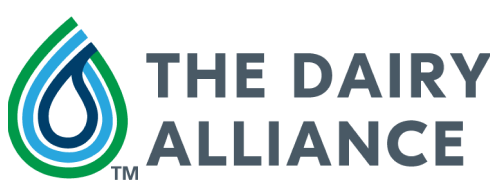
Health Benefits of
Dairy Products (Foods and Beverages)
The health benefits of dairy products are endless. We all know milk and other dairy foods and beverages provide calcium, but dairy is much more than this.
Dairy products provide essential nutrients, including calcium, high-quality protein, vitamin D, phosphorous, vitamin A, riboflavin, vitamin B12, pantothenic acid, niacin, zinc, selenium, iodine, and potassium.
Just one 8-ounce serving of milk has 8 grams of protein, which builds and repairs muscle tissue.
No matter what dairy milk you choose (whole, 2%, 1%, skim, etc.), they all contain the same 13 essential nutrients including protein, vitamin D, and calcium.
Dairy products play a crucial role in a healthy diet, offering a diverse array of vital nutrients that contribute to overall well-being. From milk and cheese to yogurt and butter, dairy is a versatile food group with numerous health advantages.
In this article, we will explore what dairy is, examine the nutritional profiles of various dairy products, discuss the health benefits of consuming dairy, and highlight the best types of dairy for optimal health.
What is Dairy?
Dairy refers to a category of food products derived from the milk of cows. Milk is the most commonly consumed dairy product. The health benefits of dairy products such as milk offer a balanced combination of proteins, carbohydrates, fats, vitamins, and minerals, making it a nutritious r beverage for many.
· Cheese is a solid food made from the coagulation of cow milk proteins. It comes in various textures and flavors, ranging from soft and mild to hard and pungent. Cheese is a versatile ingredient in cooking and adds a distinct taste to dishes.
· Yogurt is a fermented dairy product created by adding live bacteria cultures to milk. It has a thick and creamy texture and is known for its probiotic properties, which promote a healthy digestive system.
· Butter is made by churning cream or milk. It is commonly used as a spread, cooking ingredient, or for baking. Butter adds flavor and richness to a wide range of dishes.
The production of dairy involves multiple steps to ensure quality and safety. The process begins with milking cows and collecting the milk, which then undergoes pasteurization to eliminate harmful bacteria, homogenization to prevent separation, and fortification to enhance nutritional value. Our dairy farmers care deeply about their animals and do whatever it takes to not only keep them healthy but produce healthy dairy. One can only reap the health benefits of dairy products with healthy dairy cows.
Understanding the different types of dairy products and how they are produced allows consumers to make informed choices about incorporating dairy into their diets for its numerous health benefits.
Nutritional Profiles of the Health Benefits of Dairy Products
Dairy products are not only delicious but also provide essential macro and micronutrients that contribute to a healthy diet. Let's explore the nutritional profiles to examine the health benefits of dairy products even further to discover specifically what minerals and vitamins they provide.
Calcium: Essential for strong bones and teeth.
Vitamin D: Helps the body absorb calcium and supports bone health.
Potassium: Important for regulating blood pressure and fluid balance.
Vitamin B12: Necessary for the formation of red blood cells and proper brain function.
Phosphorus: Plays a vital role in bone health and energy metabolism.
Niacin: Used in energy metabolism in the body.
Zinc: Helps maintain a healthy immune system, helps support normal growth and development, and helps maintain healthy skin.
Selenium: Helps maintain a healthy immune system, helps regulate metabolism, and helps protect healthy cells from damage.
Iodine: Necessary for proper bone and brain development during pregnancy and infancy;
linked to cognitive function in childhood.
Vitamin A: Helps keep skin and eyes healthy; helps promote growth. Helps maintain a healthy immune system.
Riboflavin: Helps your body use carbohydrates, fats, and protein for fuel.
Pantothenic Acid: This helps your body use carbohydrates, fats, and protein for fuel.
In addition to vitamins and minerals, dairy products are also great sources of protein, fat, and carbohydrates.
· Protein is essential for building and repairing tissues.
· Fat provides energy and aids in the absorption of fat-soluble vitamins.
· Carbohydrates serve as the body's primary source of energy.
When consumed as part of a balanced diet, dairy products can contribute significantly to overall health and well-being. So, enjoy your favorite dairy foods while reaping the numerous health benefits.
Health Benefits of Dairy Products
Dairy is not only tasty but it is a nutritional powerhouse. From promoting bone health to supporting heart health and aiding in weight management, dairy products play a crucial role in maintaining overall well-being.
Role of dairy in bone health: Dairy products, such as milk, cheese, and yogurt, provide calcium, phosphorus, and vitamin D, all of which are essential for maintaining strong and healthy bones. Consuming an adequate amount of dairy products can help prevent conditions like osteoporosis and reduce the risk of fractures.
Dairy's impact on heart health: Contrary to popular belief, research suggests that consuming dairy products may have a positive impact on heart health. Dairy products contain beneficial nutrients like potassium, magnesium, and calcium, which can help lower blood pressure and reduce the risk of cardiovascular diseases.
Dairy's contribution to weight management: Including dairy products as part of a balanced diet can aid in weight management. The high protein content in dairy products helps promote satiety, keeping you feeling full for longer. Additionally, dairy products are a good source of calcium, which research shows may be linked to a lower risk of obesity and metabolic syndrome.
Lactose-Free Dairy Products for Lactose-Sensitive People
Since dairy products offer numerous health benefits, lactose-intolerant people need to remember that they can still reap the health benefits of dairy products with lactose-free dairy foods and beverages.
Lactose intolerance is a digestive disorder where the body lacks the enzyme needed to digest lactose, the sugar found in milk. This can lead to symptoms such as bloating, diarrhea, and stomach cramps. Fortunately, there are plenty of lactose-free alternatives available for every dairy product: milk, ice cream, cottage cheese, cheese, and yogurt.
From a nutrition standpoint, there’s really not a good plant milk alternative that will provide the same 13 essential nutrients as lactose-free milk.
Best Types of Dairy for Your Health
Regarding different milk percentages, choosing between low-fat and full-fat dairy products is a personal preference that depends on your dietary needs and goals. Low-fat dairy products like skim milk, reduced-fat yogurt, and low-fat cheese can be beneficial for individuals who are watching their calorie and fat intake. On the other hand, full-fat dairy products like whole milk, full-fat yogurt, and regular cheese can provide more satiety and may be a better option for those looking to maintain a healthy weight or add more flavor to their meals.
The Dairy Alliance Recognizes the Health Benefits of Dairy
Incorporating dairy into a balanced diet is important to ensure you're getting all the essential nutrients dairy products have to offer. Whether you enjoy a glass of milk with your breakfast, yogurt as a snack, or cheese in your favorite recipes, dairy can be a versatile and nutritious addition to your meals.
At The Dairy Alliance, we understand the importance of dairy in maintaining a healthy lifestyle.
Health Benefits of Real Cow’s Milk (and Dairy Products Made with Milk)
Whole Milk (Full-fat dairy products)
Whole milk contains 3.5% fat by weight. It delivers 8 grams of fat and 149 calories per 8-ounce serving.
2 Percent Milk
Two-percent milk contains 2% fat by weight. It delivers 5 grams of fat and 120 calories per 8-ounce serving.
1 Percent Milk
One-percent milk contains 1% fat by weight. It delivers 2.5 grams of fat and 100 calories per 8-ounce serving.
Skim Milk
Skim milk (0% fat) is what is left after all of the milk fat has been “skimmed” off. It delivers 0 grams of fat and 80 calories per 8-ounce serving.
A2 Milk
Typical dairy milk contains a combination of both A1 and A2 beta-casein proteins. Milk from cows exhibiting only the A2 form of the beta-casein protein is sold as A2 milk. It is marketed as milk for people with digestive issues, however, there isn’t significant scientific evidence to support the claim.
Lactose-Free Milk
People with lactose intolerance typically lack or have insufficient levels of the lactase enzyme that breaks down lactose the naturally occurring sugar found in most dairy foods. Lactose-free milk is real dairy milk without the lactose. To make lactose-free milk, manufacturers add a small amount of lactase, which breaks down the lactose, resulting in a milk that can be digested without discomfort by those with lactose intolerance



